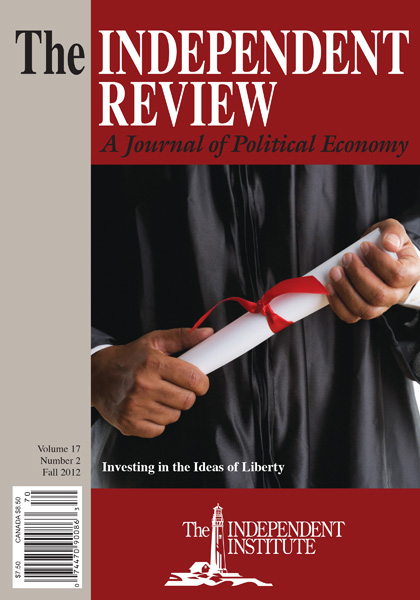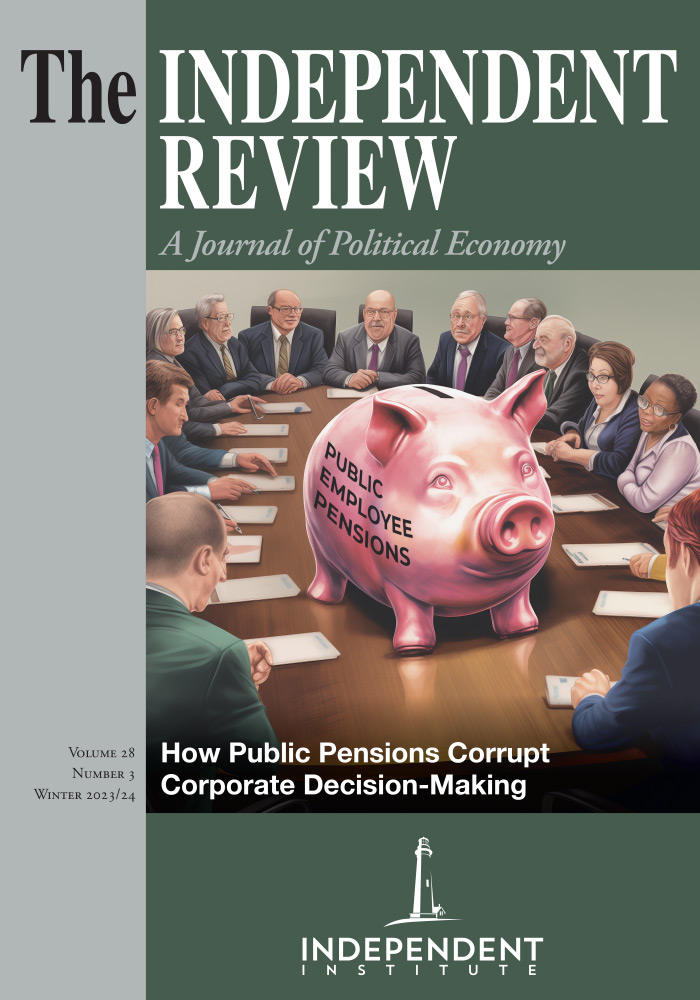Located in the Idaho panhandle, the Coeur d’Alene mining district has the largest recorded silver production in the world. Its early history is rich with examples of how, in the absence of government regulations and mitigation taxes, private parties negotiated contracts that greatly reduced the spillover costs associated with mining and milling minerals.
Article
For the greater part of the twentieth century, mainstream economists viewed negative (technological) externalities as a prima facie justification for government intervention in the market. Absent such government action, they argued, nothing would be done to prevent or remedy the damages third parties suffered as a result of unrestrained “spillovers” or “neighborhood effects.” For example, in the words of Joseph E. Stiglitz, “without government intervention there would be an underprovision of pollution control” (1988, 76). Even such staunch defenders of the market as Milton Friedman (1962, 30) and F. A. Hayek (1979, 43–45) conceded that spillovers might justify government intervention, although they embraced neither the “blackboard economics” conclusion that government intervention is desirable and effective in all cases of spillovers nor the “nirvana” standard implicit in Stiglitz’s use of the neoclassical welfare-economics term underprovision.
| Other Independent Review articles by Robert Higgs | ||
| Fall 2019 | Pressure-Release Valves in Participatory Fascism | |
| Winter 2018/19 | Two Worlds: Politics and Everything Else | |
| Fall 2018 | Against the Whole Concept and Construction of the Balance of International Payments | |
| [View All (62)] | ||










